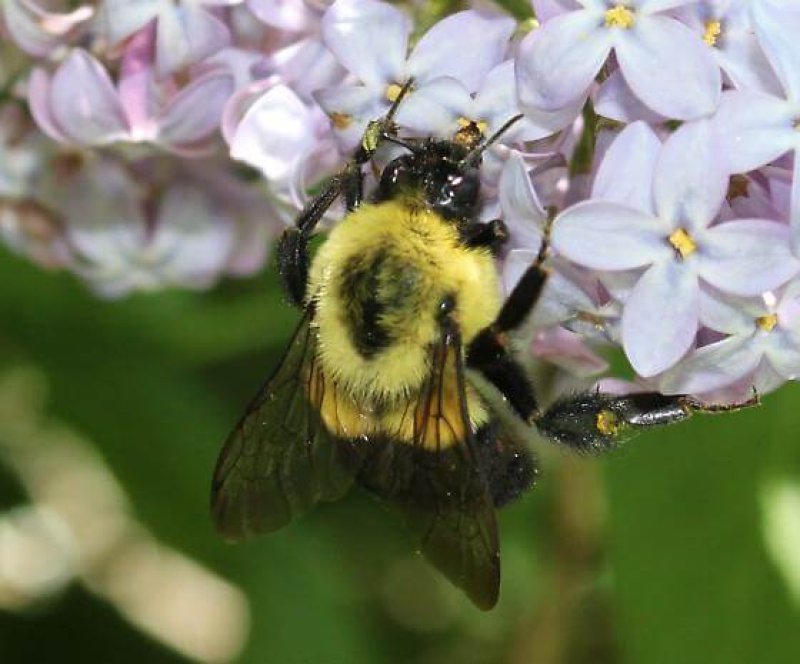In a study published today in Proceedings of the Royal Society B, researchers at the University of California, Riverside found that environmental threats are piling onto the stress faced by nest-building bumblebee queens.
Led by Hollis Woodard, an assistant professor of entomology, the team found that exposure to a widely used insecticide and a poor diet negatively impacted bumblebee queens’ health and work, which could have dramatic consequences on an already dwindling pollinator group.
…
Woodard’s team tested the effects of temporary or sustained exposure to the neonicotinoid imidacloprid and a single-source pollen diet on queens’ mortality, activity, and ability to establish healthy nests.
They showed bumblebee queens were far less active and six times more likely to die during sustained exposure (37 days) to the pesticide, which could be somewhat mitigated by a shorter exposure of 17 days. The surviving exposed bees also produced only a third of the eggs and a fourth of the larvae of untreated queens.
…
Woodard said the data support the idea that use of neonicotinoid insecticides in the U.S. should be reconsidered. The member states of the European Union recently agreed to ban neonicotinoids from all fields by the end of 2018 due to the serious danger they pose to bees.
Editor’s note: Read the full study (behind paywall)
Read full, original post: Environmental threats put bumblebee queens under pressure































